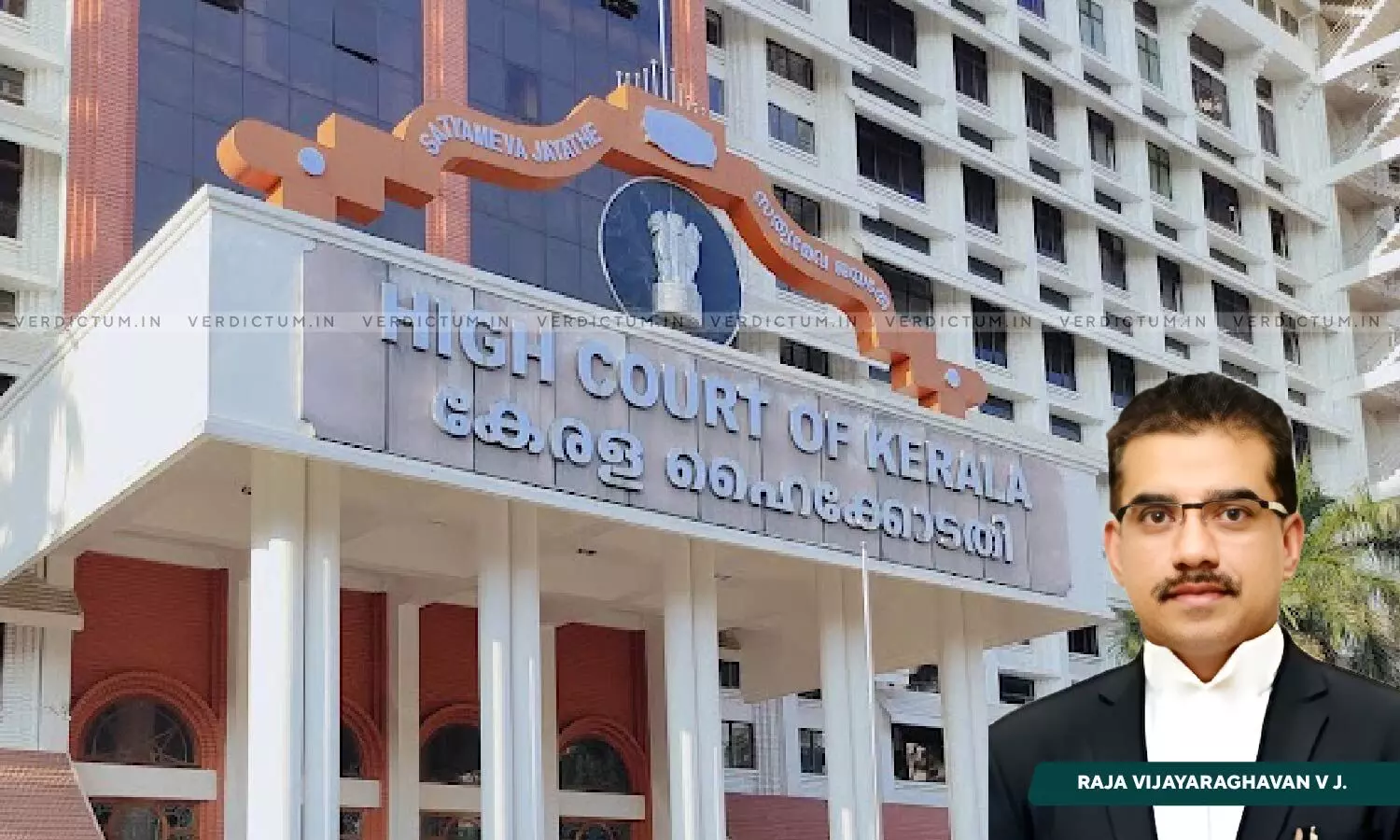
Act Of Disclosure In And Of By ED Itself Will Not Categorically Render Such Information As Constituting ‘Scheduled Offence’: Kerala HC
 |
|While considering a petition seeking the quashing of the Enforcement Case Information Report (ECIR) and all further proceedings by Enforcement Directorate (ED), the Kerala High Court held that the alleged scheduled offence must first be reported to the police, and it should fructify into an FIR culminating into investigation or trial, and only with an official record or a pending case can the authorities then consider charges for money laundering.
The High Court further clarified that in case the accused was not found guilty of the scheduled offence or if the case against him stands quashed by a competent court, then the initiation of proceeding under the PMLA Act will have to cease.
A Single Judge Bench of Justice Raja Vijayaraghavan V observed that “The disclosure by the Enforcement Directorate would not exempt the notified governmental agencies from undertaking an independent evaluation to ascertain whether the accused has contravened any statutory provisions. The act of disclosure in and of itself would not categorically render the information as constituting a “scheduled offence.” Such information remains in the realm of an accusation and is to be construed as an "assumption" until such time as it is formally registered with the appropriate jurisdictional police or is subjected to an inquiry pursuant to a complaint filed before a competent forum”.
Advocate Sharan Shahier appeared for the Petitioner, whereas Advocate Jaishankar V Nair appeared for the Respondent.
The brief facts of the case were that the petitioners were accused in the Enforcement Case Information Report (ECIR) registered by the Enforcement Directorate (ED) and an F.I.R was registered under Section 420 of I.P.C. invoking the provisions of the Prevention of Money Laundering Act, 2002. Immediately after the registration of the FIR, both the petitioners and the complainant arrived at an amicable settlement and decided to resolve the issues. The FIR, which led to the registration of the ECIR, stands quashed, invoking the authority vested under Section 482 of the Cr.P.C. The Petitioners approached the court, seeking to quash all further proceedings.
After considering the submission, the Bench noted that the entire proceeding was based on the report submitted by the Deputy Superintendent of Police, which elucidated that the investigating officer had taken the complainant's statement and that he had stated clearly and categorically that he possessed no firsthand knowledge of the facts presented and lacked any evidence to support the allegations.
The Bench referred to the judgment of Vijay Madan Lal Chaudhary v. Union of India, wherein the Apex Court had clarified that only property directly or indirectly arising from a criminal activity connected to a scheduled offence qualifies as "proceeds of crime", and the Authorities under the 2002 Act are not empowered to act against someone for money laundering based merely on assumptions.
The Bench, therefore, reiterated that for the offence of money laundering as defined under Section 3 of the 2002 Act to occur, a person must unlawfully obtain property from specific types of criminal activities, referred to as "scheduled offences", as the ‘Act’ sets clear limits on the Directorate’s ability to charge someone with the offence of money laundering, and therefore, mere suspicion or hunches that some individual may have perpetrated a scheduled offense is not enough to initiate proceedings for money laundering as defined under the Act.
“The source from which the information material was received is FIR No 376 of 2022. As the FIR stands quashed by this Court, there can be no offense of money laundering against the petitioners or anyone claiming such property being the property linked to stated offense through him. In that view of the matter, I find it difficult to accept the submission of the Central Government Counsel that the ECIR will survive even if the life-giving FIR is no more”, added the Bench.
The High Court therefore concluded that as the FIR stands quashed, there can be no offense of money laundering against the petitioners or anyone claiming such property being the property linked to the stated offence through him.
Accordingly, the High Court quashed the ECIR, while clarifying that in the event of the predicate offence getting revived, it would always be open for the ED to revive the proceedings under the Prevention of Money Laundering Act, 2002 as well.
Cause Title: V.P. Nandakumar and Anr. v. The Deputy Director, Cochin and Anr. [Neutral Citation: 2023/KER/52042]
Click here to read/download the Order